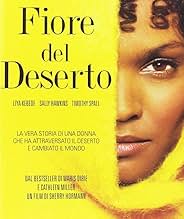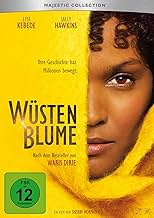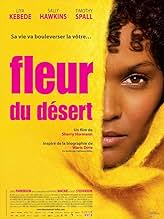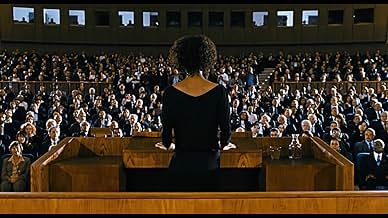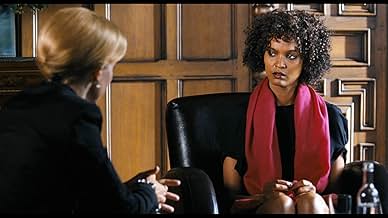The girl who was chosen to play the young Dirie as she undergoes FGM is Safa Idriss Nour and was picked on condition that her parents sign a contract agreeing never to perform the same ritualistic operation on her. Dirie's new book begins in 2011, four years after the contract with Nour's parents had been signed, when she received a letter from the girl that suggested her parents were having second thoughts. "I was shocked and I was very angry," Dirie, 48, said. "I decided I had to fly to Djibouti immediately to save my little girl from this brutal crime."
Once in Djibouti, she realised that the family were being ostracised and Nour's fear of being forced to undergo FGM, rather than diminishing, had grown. Then seven, Nour told her: "Grandmother carried out lots of circumcisions in our house. The girls screamed so loudly, just like I did in the film."
Nour's parents confirmed that pressure from neighbours and others for Nour to undergo FGM was weighing heavily on them. They told Dirie that her daughter and the family were being treated as outsiders and neighbours were jealous of the financial and medical support they were receiving from Dirie's FGM campaigning charity, Desert Flower Foundation, in return for upholding the contract.
"Safa's family is surrounded by others struggling every day to survive. Even though the families have very little money, they save what money they have to cut their daughters, because otherwise they will not get a bride price from the future husband," Dirie said. "Because of our support, Safa's family is completely independent and the first family in the area to stop the vicious circle. This is a breach of their tradition, and people have big problems with this."
Dirie spent time with the family and took some of them to Europe to show them campaigning work and talk about the corrective surgery carried out by the Desert Flower Foundation. The experience was a turning point, particularly for the father, who once argued strongly with Dirie over cutting Nour. He now works as an activist for the charity.
"Safa's father has even invited neighbours to participate in our programme and the reactions were positive," Dirie said, demonstrating the difference that can be made when campaigns are led from within the communities they are trying to change.
Although the case of Nour's father was a success, trying to encourage broader behaviour change through education is not easy. "Educating communities is very difficult as people are very stubborn and not willing to change their habits even if it is against humanity," says Dirie.


